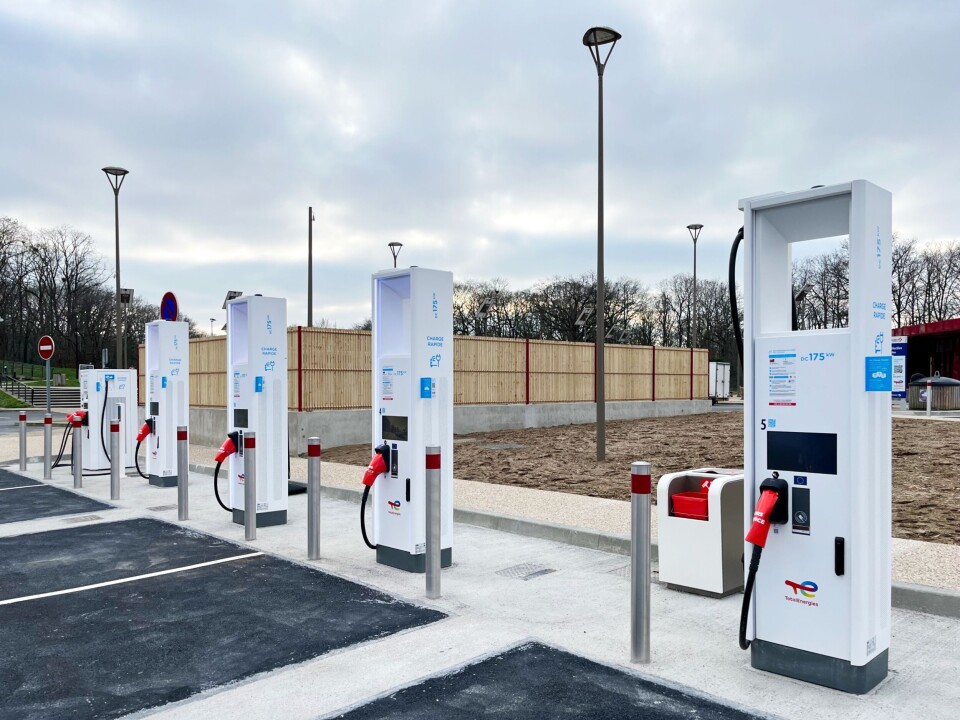-
‘No-licence’ cars: six rules to know in France
Double the number of these cars were registered in 2024 compared to 2019
-
France’s first 100% electric service station set to open in 2026
Station in Brittany will include six ultra-fast charging points
-
Tests underway on French motorway into recharging electric vehicle as you drive
‘World-first’ scheme sees quicker charging times than traditional methods
France hits 100,000 electric car chargers - but will they be used?
Public chargers are expensive and reportedly mainly used by holidaymakers

The number of public charging points for electric vehicles passed the 100,000 mark in May, five months later than the government’s revised target of the end of the year.
There has been a dramatic rise in the rate of installation – from 3,000-5,000 new points per year before 2020 to 3,000-4,000 a month in the years since, new official data shows.
France now has the second-largest network of charging points in Europe, behind the Dutch (125,000 points) but ahead of the Germans (85,000).
Public chargers used mainly in holiday season
In France, almost all electric car purchasers also buy a domestic wallbox charger and Renault estimates that 90%-plus of the electricity used to charge batteries comes from them.
Public points are thus mainly used in holiday season by drivers passing through.
Public chargers, which are usually expensive to use, are visited only 13.5 times a month on average, says the Association nationale pour le développement de la mobilité électrique.
A third of public chargers are operated by shops, usually supermarkets, a third are in public car parks, and a quarter in parking bays along the side of the road. The rest are mainly on business premises, often garages.
Read more: Car charging points on increase in France but costs more than diesel
Fast charging stations cost around €1million to install
Fast chargers, giving up to 150kW of power, make up only 6% of public chargers in France, and are mainly on autoroutes.
They can usually give enough power to the battery in half an hour for several hundred kilometres of driving range but each station (usually two to four cable points) costs around €1million to install.
By far the majority of the public chargers are 22kW or less – a level that makes installation costs cheaper and that usually provides 50-100km of driving range in 30 minutes of charging.
At the end of March, there were more than 760,000 electric vehicles on French roads and another 449,000 plug-in hybrids, which typically have a 30km electric-only range before a conventional engine takes over, new figures from the industry agency Avere show.
Read more: ‘We tried out driving from Yorkshire to Dordogne in an electric car’
Tesla and Dacia make most popular electric cars in France
In March, the best-selling electric car in France was the Tesla Model Y, with 6,455 vehicles sold. A price drop made it eligible for bonus écologique grants, under which drivers can receive €5,000 to €7,000 towards an electric car worth less than €47,000.
The next bestseller was the Dacia Spring. For electric vans, the Citroën ë-Berlingo was the most popular.
President Macron has said he wants to change the bonus rules so that it applies only to cars made in Europe.
Related articles
Citroën to sell 1,000 more tiny cars some can drive without a licence
Tesla, Ikea, new factories: Key takeaways from Choose France summit
‘Our London to Paris Electric Vehicle Rally dismisses range anxiety’
























